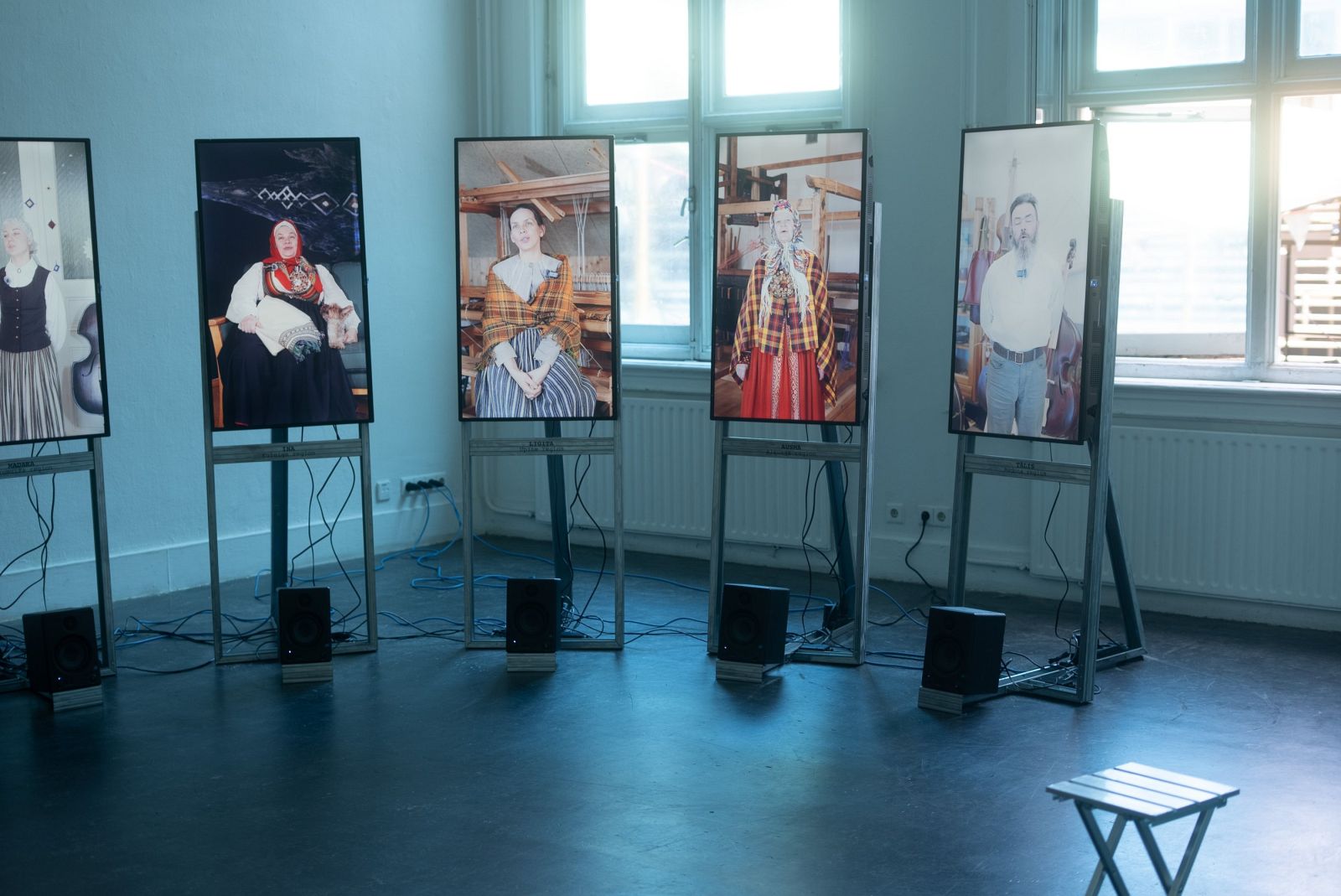
Ieva Jakuša
Keywords: Oral culture, Folk song, Nationalism
Tuned Voices is an audiovisual installation that examines how traditional culture is often perceived as orderly, disciplined, and shaped to serve national identity. In Latvia, folk songs have long been presented as national treasures, commonly performed by choirs in highly formalised settings. Yet beneath these polished surfaces lies an institutionalised echo of oral traditions, reshaped to fit a homogenised sense of identity.
At the centre of the work is Pūt, vējiņi (Blow, Wind), a folk song that originated with simple lyrics sung in homes and taverns. In 1884, Andrejs Jurjāns arranged the song into a grand choral composition, transforming it into a key symbol of Latvian national identity.
In contrast to this formalised version, Tuned Voices brings together recordings of nine individual folk singers from various regions of Latvia, each performing a personal rendition rooted in oral tradition. These interpretations reveal lesser-known, unpolished variations rarely heard within institutional frameworks. Each voice begins in its raw, authentic state before being gradually autotuned and synchronised, reflecting the flattening and standardisation that occurs when living traditions are absorbed into national narratives. Tuned Voices explores the tensions between tradition and nationalism, and reclaims folklore as plural, unfixed, and resistant to the pressures of uniformity.
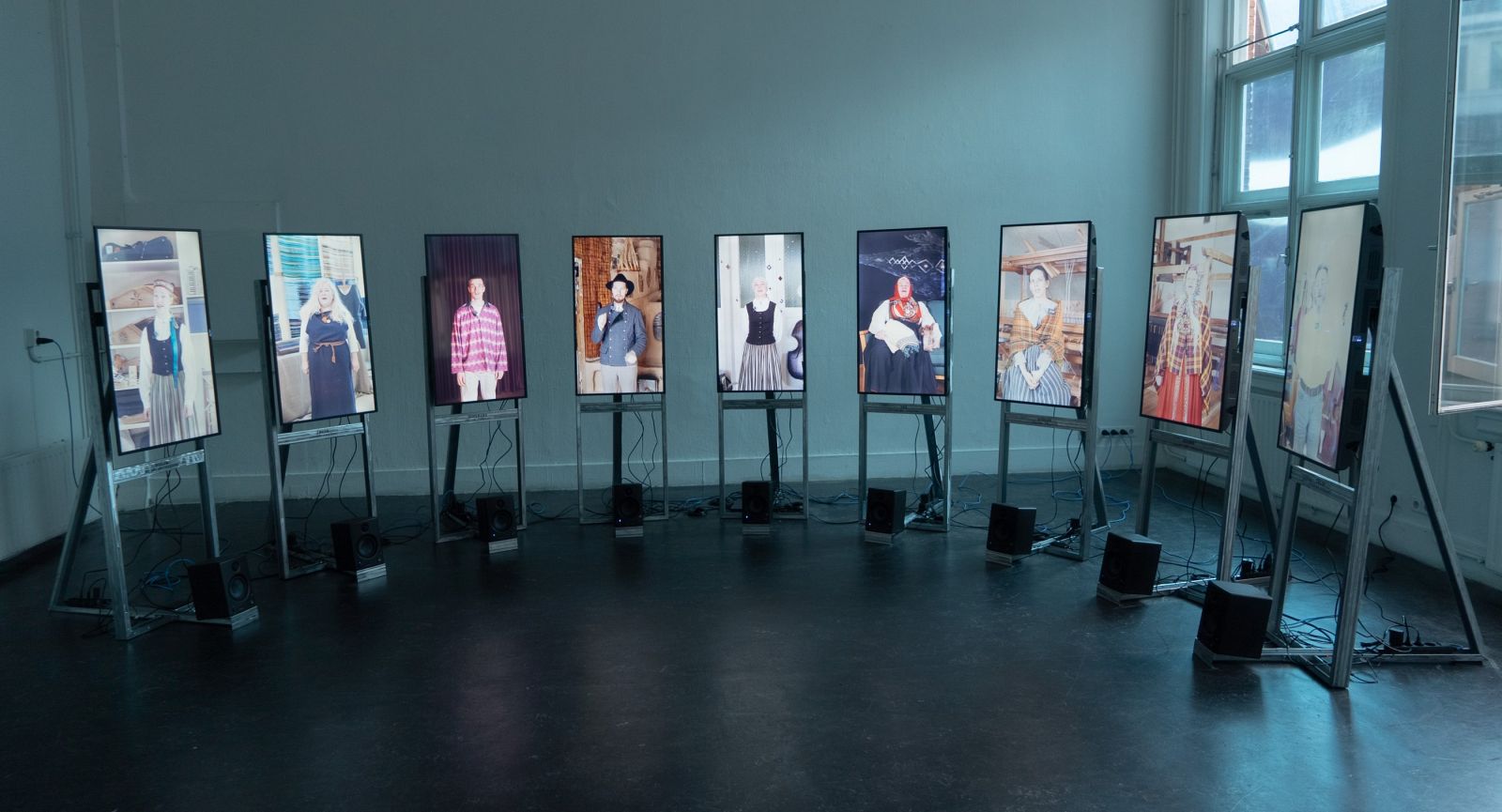
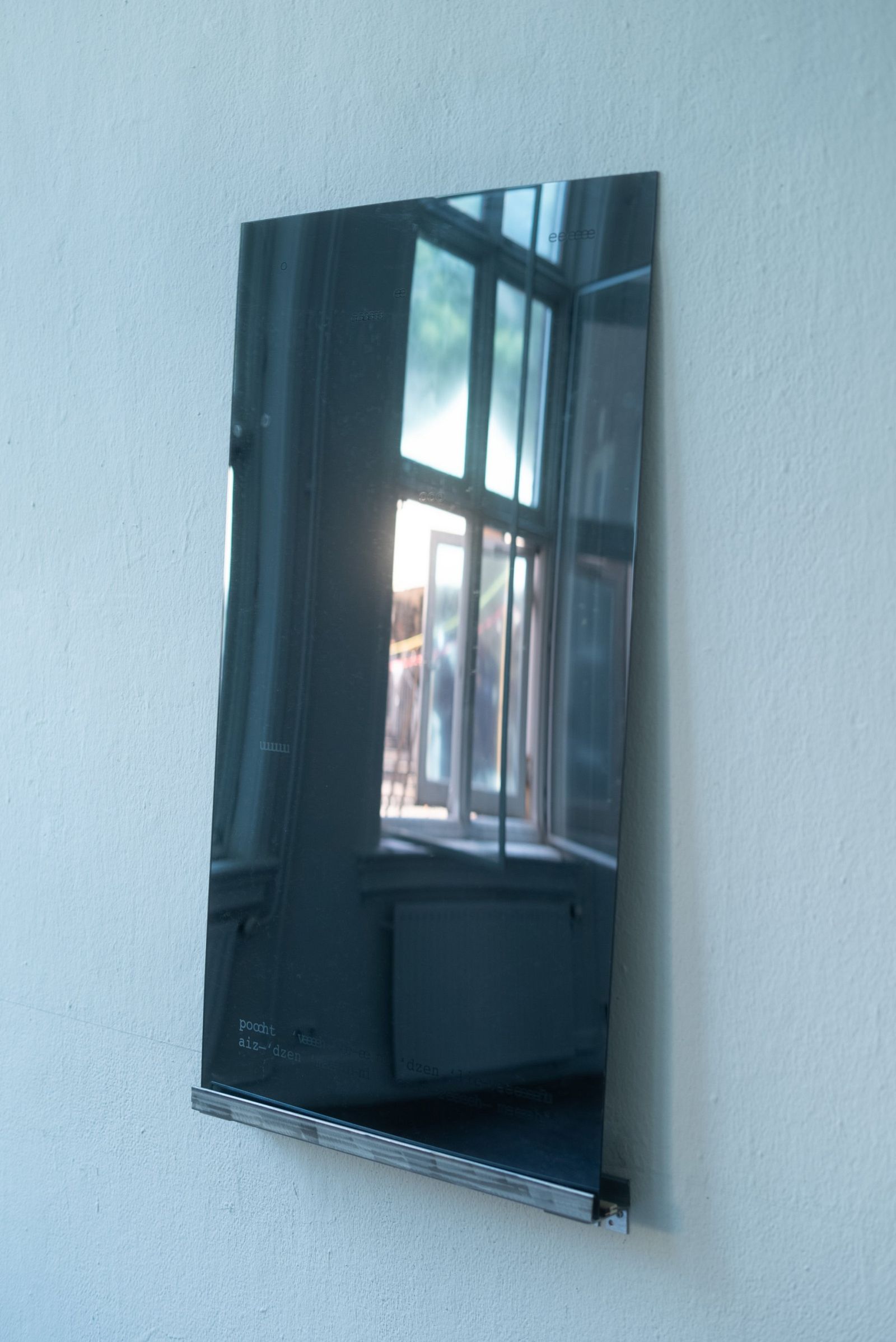
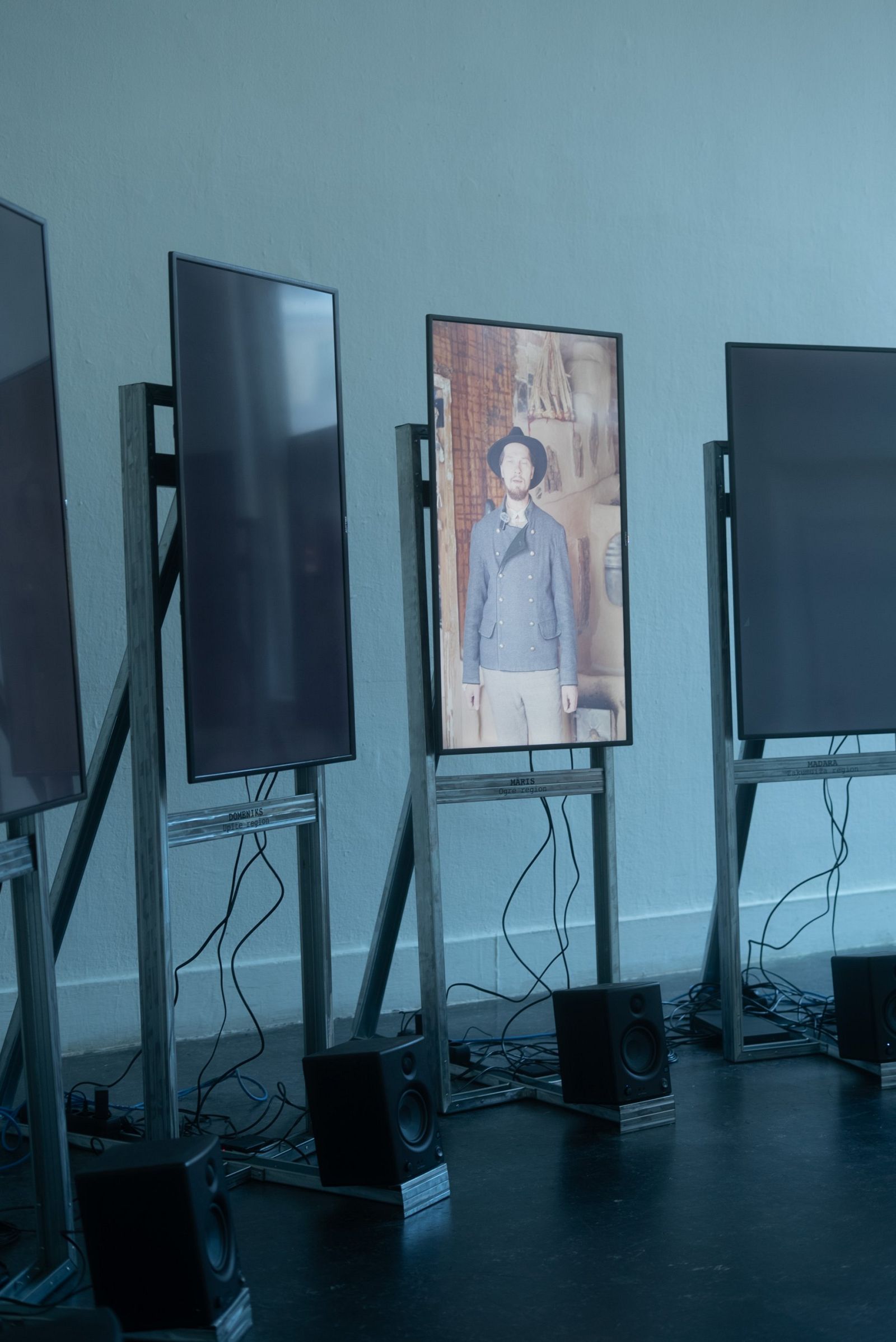
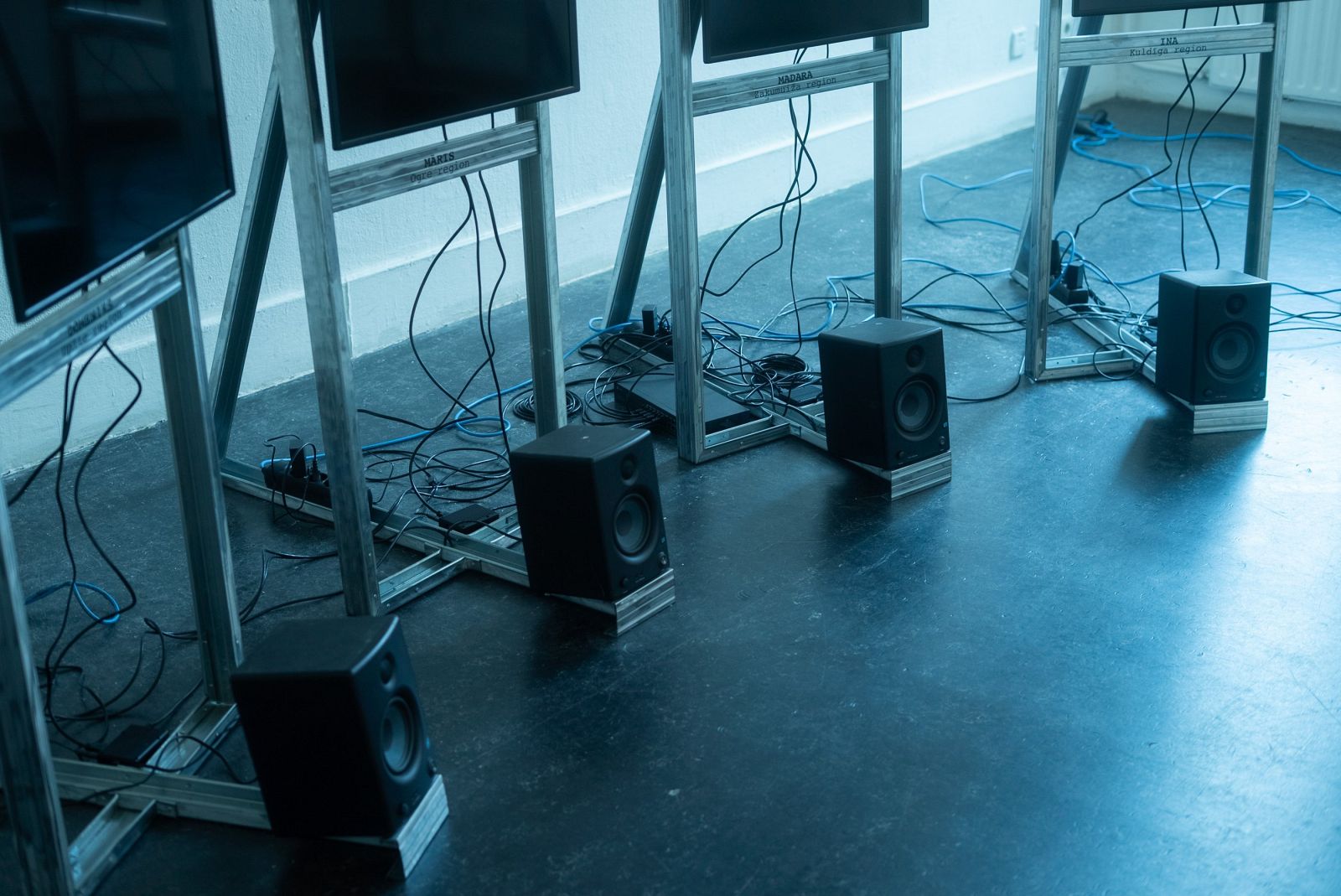
SPECIAL THANKS
Sound designer RADVALD for his attuned ear and the depth he brought to the sound.

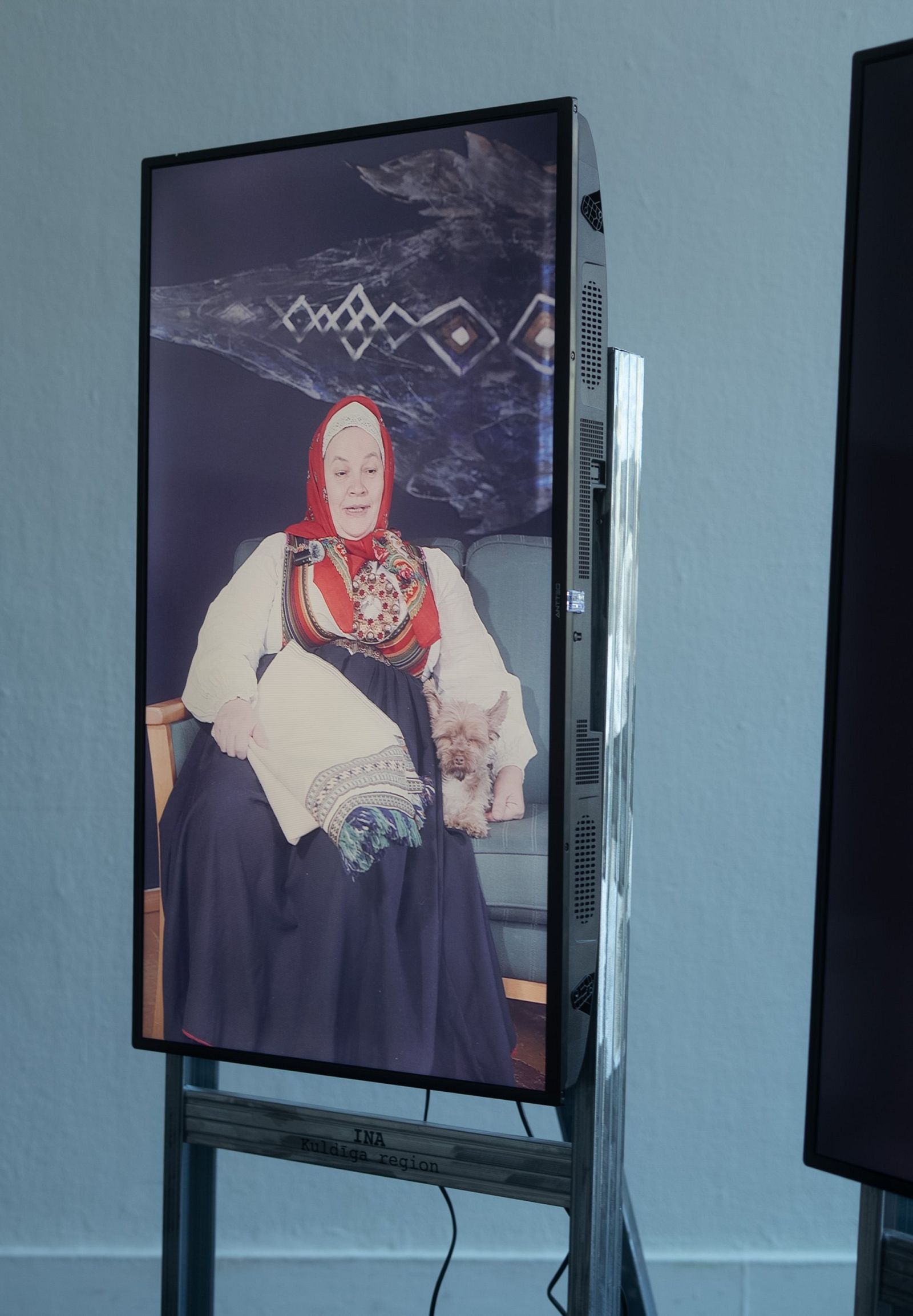

The project would not have been possible without the generosity of the singers: Ausma from the Alsunga region, Egija from the Baldone region, Inese from the Cēsu region, Ina from the Kuldīga region, Domeniks and Ligita from the Upīte region, Madara from the Rīga region, Māris from the Ogre region, and Tālis from the Madona region. My support system includes Madara Tukiša and Sabīne Šorendo, who provided both technical and emotional support; Ernests Elksnis, who offered technical guidance; and Rita Zara, Dace Bula, and Māra Vīksna of the Latvian Folklore Institute, who provided theoretical guidance.
Throughout the graduation process, I received supervision from Aurélie Lierman and Ramon Amaro.